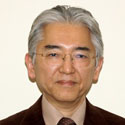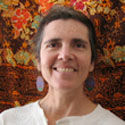Advisory Board and Editors Biotechnology

Bishoy Kamel
I am currently a scientist at the Joint Genome Institute at Lawrence Berkeley National Laboratory. Working on a diversity of topics, including evolution, genomics, metabolic modeling, host-parasite interactions, and biosurveillance.

Kazunori Kataoka
Professor of Biomaterials at Department of Materials Engineering of University of Tokyo. Joint appointment in Medical School of University of Tokyo as Professor of Clinical Biotechnology, Center for Disease Biology and Integrative Medicine. Editorial of Journal of Biomaterials Science, Polymer Edition. Associate Editor of Biomacromolecules. Associate Editor of Biomaterials. Recipient of the 2012 Humboldt Research Award. President of Controlled Release Society. Reciepient of the 2015 Journal of Drug Targeting Life-Time Achievement Award.

Julia Kehr
Professor Hamburg University, Germany
Professor Politechnic University Madrid, Spain
Group Leader Max Planck Institute Potsdam, Germany

Nancy P. Keller
Professor of Medical Microbiology and Immunology/Bacteriology at the University of Wisconsin, Editor of Fungal Biology and Genetics, American Phytopathological Society Fellow and American Academy of Microbiology Fellow

Mather A Khan
Dr. Mather A Khan is a Senior Scientist at the Institute of Botanik, Heinrich Heine University, Düsseldorf, Germany. Before moving to Germany, Dr. Khan worked as a Postdoctoral fellow and then as a Research Scientist at the University of Missouri-Columbia, USA.
Dr. Khan’s research interest is mainly focused on understanding the mechanisms mediating the uptake and accumulation of essential (Iron, Fe; Zinc, Zn) and toxic metals (Cadmium, Cd) in plants. He is using state-of-the-art techniques including cell-specific transcriptomics, functional genomics, and ionomics to understand how plants take up, distribute and accumulate micronutrients and toxic elements within plant tissues, including seeds. During his stay at the University of Missouri, Dr. Khan discovered that leaves seem to sense the Fe status of the whole plant before roots that in contrast to the traditional view of nutrient sensing by plant roots. His research suggests that leaves integrate signals from different tissues and relay the information on the Fe status to roots to trigger, or not, an Fe deficiency response (i.e. increased Fe uptake).
He joined the Institute of Botanik, Heinrich Heine University in January 2021, where his research continues to explore the seed loading mechanism of Fe and Zn and develop strategies to optimize crops for higher protein and nutritional value which are essential for future agriculture production to ensure food security and reduce malnutrition and poverty.

Imran Khan
I received my MSc. Degree from Jawaharlal Nehru University, India in 2007 on understanding the role of TBP associated factor 9 (TAF9) in eukaryotic transcription. I completed my Ph.D. training in the laboratory of Prof. Paturu Kondaiah, in 2012, at Indian Institute of Science, Bangalore, India, on exploring the mechanism of precancerous oral lesion (OSF and Oral cancer) using gene expression profiling. I also worked on exploring the molecular mechanism of photo dynamic therapy agents in cancer cells. I did my first post doctorate in Dr. Praveen Arany’s lab at NIDCR, NIH on exploring the role of laser mediated phototoxicity involving ER stress and laser mediated wound healing. I am currently doing my second postdoctoral training in the laboratory of Patricia Steeg at NCI in NIH, on exploring the molecular mechanism of metastasis suppressor gene, NM23 in breast cancer metastasis and its possible therapeutic applications.

Haseeb A. Khan
Distinguished Professor of Biochemistry at College of Science, King Saud University, Riyadh, Saudi Arabia. Group Leader of Analytical and Molecular Bioscience Research Group and a Chair Professor at Research Chair for Biomedical Applications of Nanomaterials, King Saud University. PhD from Aligarh Muslim University, Aligarh, India and received scientific trainings in USA, UK, Denmark and Finland. Fellow of the Royal College of Pathologists (FRCPath) and the Royal Society of Chemistry (FRSC), UK. Authored more than 300 publications including 2 books and 20 book chapters. Recipient of Microsoft eScience Award. Listed in Top-2% World Ranking of Scientists. Research interests are clinical biochemistry, analytical chemistry, environmental chemistry, nanobiotechnology, molecular conservation, bioinformatics, pharmacology, and toxicology.

Leondios G Kostrikis
Professor Leondios Kostrikis is a Professor at University of Cyprus. He received his B.Sc. and Ph.D. degrees from New York University and his post-doctoral training at the Aaron Diamond AIDS Research Center of Rockefeller University. He joined the Rockefeller University as an Assistant Professor in 1999 and the University of Cyprus as Professor in 2003. He was a Fulbright, Elizabeth Glazer Pediatric AIDS Foundation and Aaron Diamond Foundation scholar. He has directed over twenty competitive grants from the NIH and the European Commission and he is an Editorial Board member for eleven international journals.

Mohammed Kuddus
Dr. Mohammed Kuddus is working as a Professor and Chairman of Biochemistry Department at University of Hail, Saudi Arabia. His main research area includes Molecular biology, Industrial enzymes, Extremophiles and Extremozymes, Microbial biotechnology, Food biotechnology, Waste utilization, Value added products, Bioremediation, Biopolymers and Bioplastics. He has published more than 75 research articles in reputed international journals along with 8 books and 22 book chapters; and presented more than 40 abstracts in national/international conferences/symposia. He has been serving as an Editor / Editorial Board Member and Reviewer of various international reputed journals. He has been awarded Young Scientist Projects from the Department of Science and Technology, India and International Foundation for Science, Sweden.

Tong Geon Lee
Genetics, Genomics, Bioinformatics, Corn, Tomato, Soybean, Wheat-Rye Translocation

Jack C. Leo
I study bacterial pathogenesis, focusing on autotransporters of Gram-negative bacteria. These proteins are self-contained secretion systems and surface molecules that mediate a number of virulence functions. I aim to understand three aspects of autotransporter-mediated pathogenesis: 1) the mechanisms of virulence functions, 2) the biogenesis of autotransporters and 3) regulation of gene expression. All three are potential sites for intervention to prevent host colonisation and infection.

Kam W. F. Leong
James B. Duke Professor of Biomedical Engineering at Duke University. Recipient of the 2012 Clemson Award for Applied Research.

